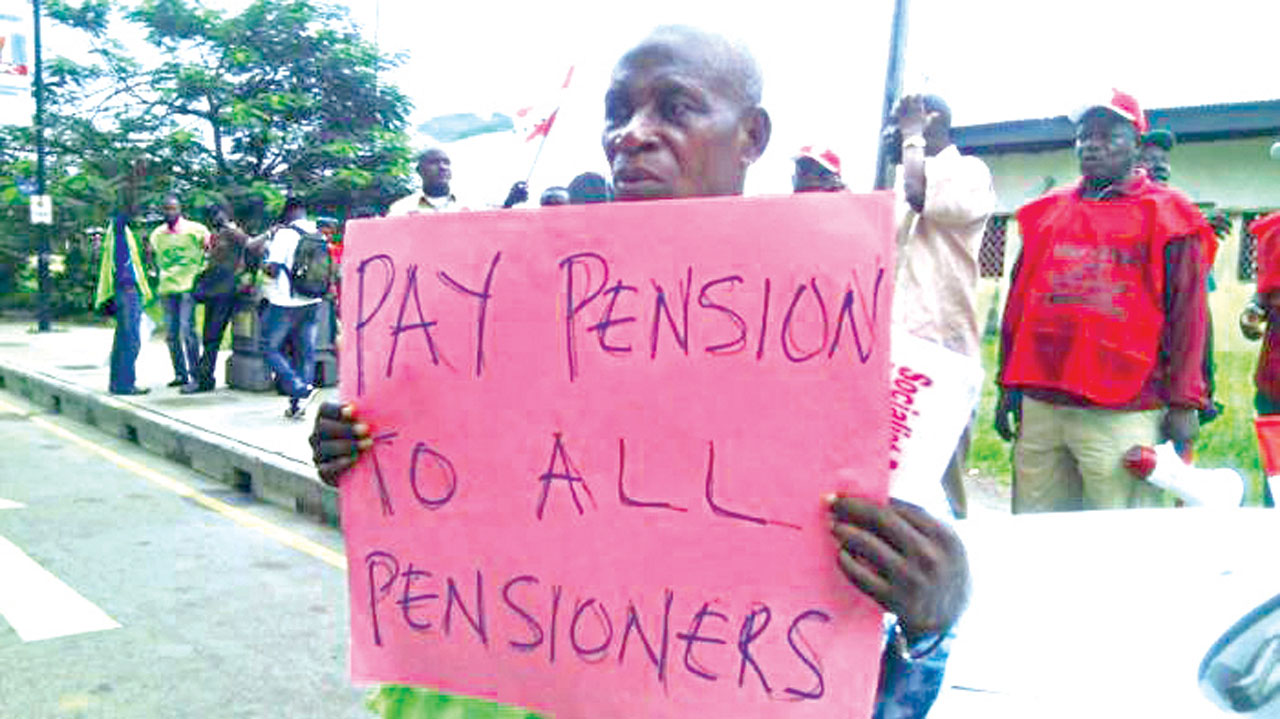
This certainly calls for urgent action considering the unacceptable situation to which retirees are subjected whenever they are denied their gratuities and pension.
It is worrisome that almost 19 years after the Federal Government introduced the contributory pension scheme to address the plight of ex-workers in the country, most of whom have died while struggling to get their entitlements, and a lot of others who are living in abject poverty, their hardship has continued because most states have failed to give priority to payment of their benefits.
More lamentable is that state governors, who are supposed to ensure payment of the retirees’ benefits as and when due, are freely collecting the pension and other humongous benefits that they award themselves and their deputies through deliberate laws, despite public criticism; while retired-workers continue to live in penury. This sad situation should be redressed. Employers have a responsibility of ensuring that after retirement, their ex-workers do not turn to beggars of face retirement that amounts to a death sentence for them.
As part of pension reform in the country, the CPS was introduced under the Pension Reform Act (PRA) 2004 which repealed the Pension Act 1990. One of the objectives of the PRA, which was adopted by the Federal Executive Council (FEC) in August 2006 for the states and local governments, is to establish a uniform set of rules, regulations and standards for administering and paying retirement benefits for the public and private sectors at the national and sub-national levels. Subsequently, a model state pension law was developed for the states across the country to adopt and modify to suit their peculiarities. Failure to pay retirees their benefits and pension promptly has dire consequences for productivity, transparency, accountability and morality in the civil service; it should not be allowed to persist; as it could spur sharp practices by the workers.
The second quarter report of the National Pension Commission (PenCom) for 2023 listed the FCT, Lagos, Ondo, Osun, Kaduna, Edo and Ekiti states as fully implementing the CPS. The report indicated that some states were at different stages of implementing the CPS while others continue with the old pension scheme called Defined Benefits Scheme (DBS). The PenCom report revealed that Delta State was substantially implementing CPS unlike Anambra, Benue, and Kebbi that were doing partial implementation; as Rivers, Ogun and Niger extended their transition period to the new scheme. Bayelsa, Kogi, Abia, Taraba, Imo, Sokoto, Ebonyi, Nasarawa, Enugu, Bauchi and Oyo were yet to begin implementation of the scheme.
PenCom said Jigawa was fully implementing the Contributory Defined Benefits Scheme (CDBS), a hybrid of DBS; Kano was partially doing so, while Adamawa, Gombe and Zamfara have not started implementation. The breakdown further showed that Plateau, Cross River, Borno, Akwa Ibom, Katsina, Yobe and Kwara were at the stage of adopting the CPS through bills in their legislative houses.
Indeed, retirees across the country are suffering, as their employers are not giving priority to their plight. Even when states claim to implement the CPS, are the ex-workers actually getting their benefits as and when due? The Director of the Centre for Pension Rights Advocates, Ivor Takor lamented: “In some states, pensions are being owed for upward of 35 months. The backlog of gratuities is almost a forgotten case, while death benefits payable to the next–of-kin of the deceased public servants are not mentioned.”
In some of these states, retirees are reportedly being forced to part with a percentage of their benefits, especially gratuity, before they are paid the balance. This bribe is extended to the gratuities of those that died in active service, through their families seeking to collect the benefits. It is callous, reprehensible and unpardonable on the part of the civil servants involved. It is wickedness on the part of any government not to give priority to payment of entitlements of workers who died while in service and left behind children who must be fed, whose school fees must be paid, who must be clothed and whose health must be taken care of. In a sane society where leaders are not looters of the treasury and where public interest is the primary purpose of being in position of power, the entitlements of civil servants who died while serving their country should be paid without any delay.
Also deplorable is that many states that refuse to pay retirees have life pension laws in favour of their former governors and deputy governors, which guarantee that the former political office holders maintain lives of luxury through generous pensions and other benefits. Besides, some of the ex-governors are still in government, drawing pensions and other retirement benefits from the states they governed just as they are also drawing salaries and allowances as either senators or ministers, while retired civil servants of their states are languishing in abject poverty and destitution and even dying.
For fairness, justice and as a matter of responsibility, state governments should save the country the embarrassment of their ex-workers becoming beggars, destitute and living miserable lives after serving their nation for the best part of their lives. The Pension Commission must wake up to its responsibility of ensuring that pensioners get what is due to them and at the right time. The government should device new ways of conducting verification exercise for retirees that is less tedious for the elderly ex-workers and should vote enough money to pay pension and gratuity. The governors should exhibit fiscal discipline and give priority to the benefits of retired civil servants. They need to investigate the bribery and other complaints in the payment of retirees’ entitlements in their states, with a view to stopping the vice.






